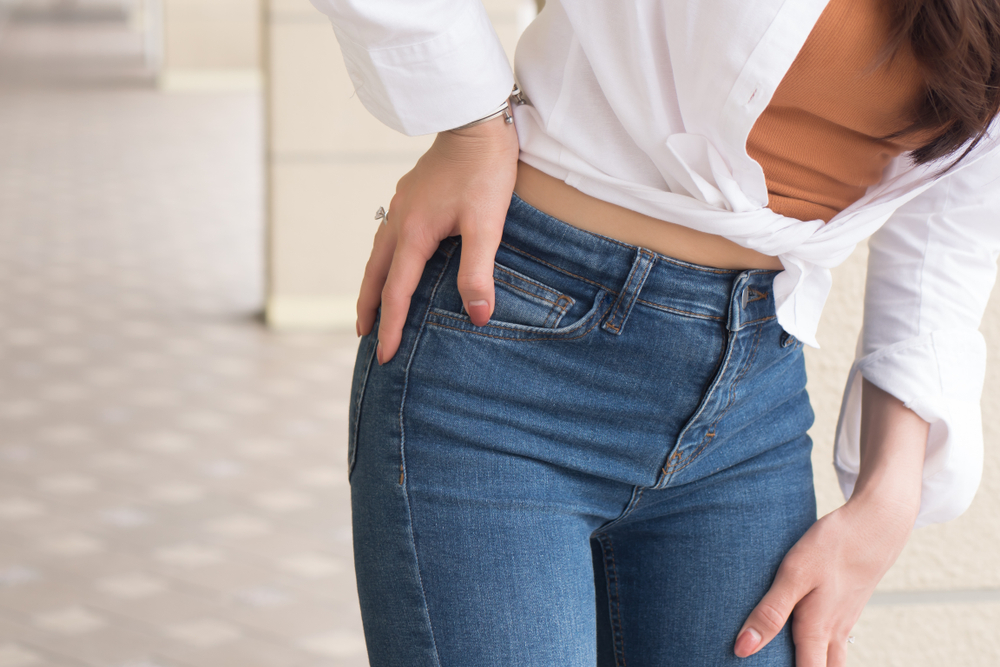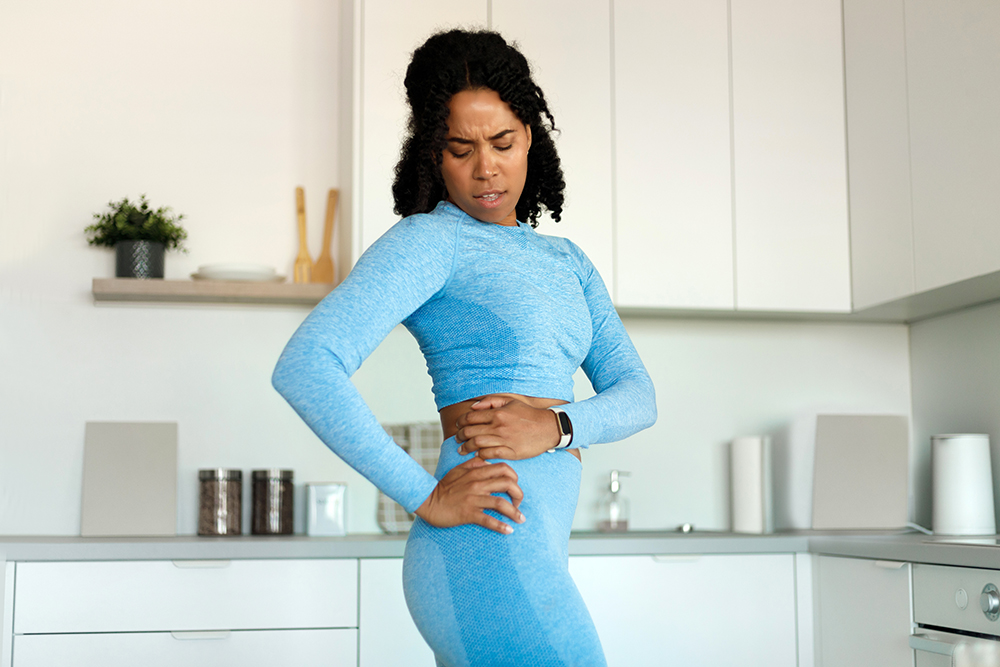Contents
Your hip is a ball-and-socket joint made up of the head of the femur (the ball) and the acetabulum (the socket) in the pelvis. This joint is surrounded by muscles, ligaments, tendons and cartilage. These all work together to both help your body with stability and help your body move. If you are experiencing hip pain when lying down, it can be incredibly frustrating and uncomfortable. It can even affect your sleep and general quality of life. To best help your situation, it is important to figure out the underlying cause of your hip pain.
Potential causes of hip pain when lying down
The underlying cause of your hip pain when lying down can be caused by a variety of causes, including:
- Bursitis — The bursae are small, fluid-filled sacs that help with lubrication of the hip joint. When these sacs become inflamed, it is known as bursitis. Bursitis can cause pain, especially when lying on the affected hip. Pressure on the affected side can compress the inflamed bursae and exacerbate your pain.
- Osteoarthritis — Osteoarthritis is the most common cause of hip pain, especially in adults over the age of 60. Osteoarthritis is due to the protective cartilage of the hip joint wearing down over time. This breakdown can lead to pain and stiffness in affected joints. Pain in your hip when lying down can increase due to the pressure applied to your hip joint.
- Hip impingement — Hip impingement occurs when there is abnormal contact between the bones of the hip joint. This can lead to pain and potential damage to your hip joint.
- Tendinitis — Tendinitis is a condition caused by the overuse or repetitive strain of the tendons surrounding the hip. This inflammation and irritation of the tendons can result in pain when lying down, especially if pressure is applied to the affected hip.
- Labral tears — The acetabular labrum is a ring of cartilage that lines the hip socket. When this cartilage becomes torn, it can cause you pain, especially when you are lying down on the affected side.
- Muscle imbalances — If you are experiencing weak or imbalanced hip muscles, this can lead to abnormal joint movement and pain. This pain may worsen when you are lying down due to the increased tension on your hip muscles.
- Sciatica — Sciatic nerve pain can radiate down into your leg, but it can also cause discomfort in your hip area. This pain may worsen when you are lying down and pressure is put on the affected hip.
Treatments for hip pain when lying down
There are treatment options available that can help your hip pain. The underlying cause may influence the treatment choice that is best for you. Treatment options can include:
- Physical therapy — Physical therapy can be an effective treatment for your hip pain. It can help you manage your pain and improve your strength, flexibility and range of motion. Your physical therapist can design a personalized treatment around your specific needs and concerns.
- Rest — Resting from or reducing activities that exacerbate your hip pain can help provide you with pain relief. This can especially be the case if your hip pain is caused by repetitive motions or overuse. When resting, it is important to avoid lying on the affected side to help relieve pressure placed on the hip.
- Medication — Some conditions may respond well to over-the-counter pain relievers. These medications can help you manage your pain and help reduce inflammation. However, in some cases, stronger, prescription-strength medications may be deemed necessary by your health care provider.
Physical therapy treatments for hip pain when lying down
Physical therapy can play a vital role in rehabilitating your hip to help alleviate the pain you are experiencing when lying down. Physical therapy treatments that can be effective in helping your hip pain can include:
- Therapeutic exercises — Therapeutic exercises are intended to help you strengthen the muscles around your hip joint. Doing these exercises can help your muscles better support your hip stability.
- Manual therapy — Manual therapy can be an effective treatment option for hip pain, particularly for conditions like labral tears and hip impingement. Your physical therapist may use hands-on techniques like joint mobilization or soft tissue manipulation to help reduce your pain and improve your hip joint function.
- Therapeutic ultrasound — Therapeutic ultrasound may be used in physical therapy to help improve your pain and promote better circulation for improved healing.
- Electrical stimulation — Electrical stimulation uses a TENS device to send mild electrical currents to your nerves. This is intended to help relieve pain by blocking the nerves sending pain signals to your brain. It can also boost relaxation and circulation.
Your physical therapist will design a personalized treatment plan based on their evaluation of your condition to meet your needs and concerns. This treatment plan can help alleviate your pain, restore hip function, and potentially help to prevent further injury to your hip joint. Through passive and active treatments, a physical therapist can help you regain your quality of life.
Lattimore PT can help you discover the underlying cause of your hip pain and help you find pain relief
Lattimore Physical Therapy can help you with hip pain you experience when lying down. An expert licensed physical therapist can conduct a full evaluation and determine the underlying issue resulting in your pain. After the cause is determined, your physical therapist will design a customized treatment plan. We strive to provide our clients with the top-notch care they deserve to help them to achieve their physical therapy goals. From pain relief to improved quality of life, our Lattimore PT team will be here to help you every step of your physical therapy journey.
Contact our team today for more information or to schedule an initial appointment.



